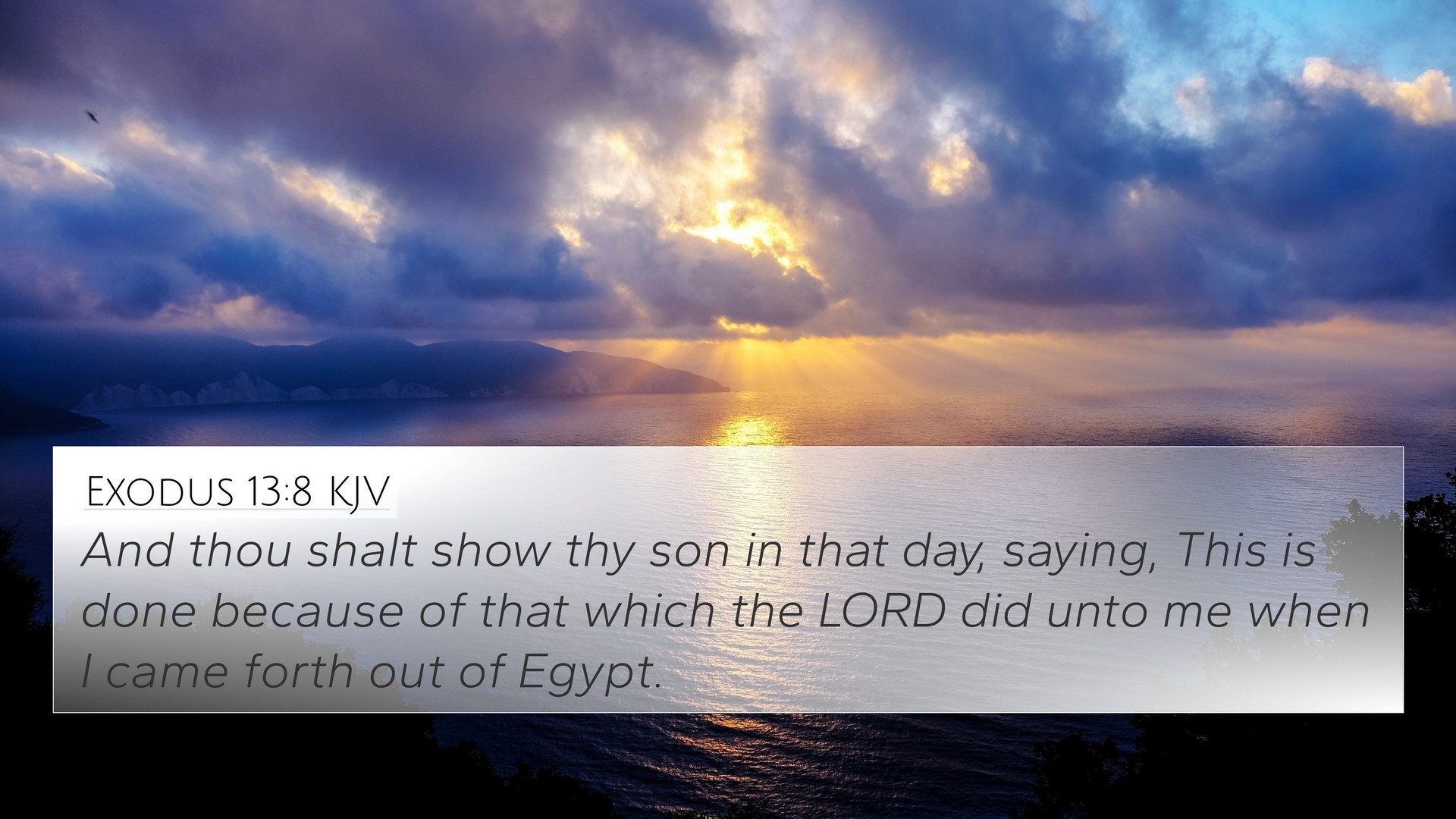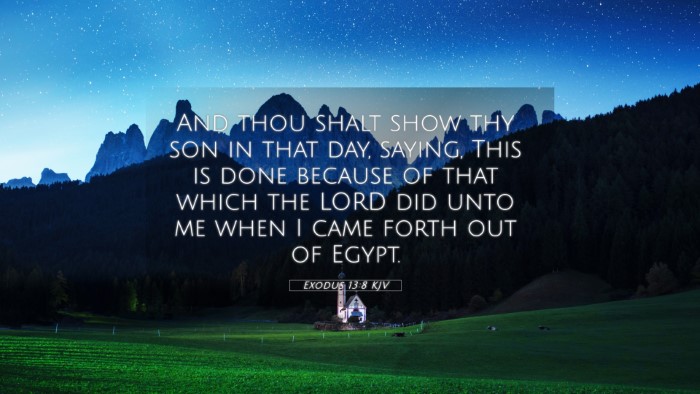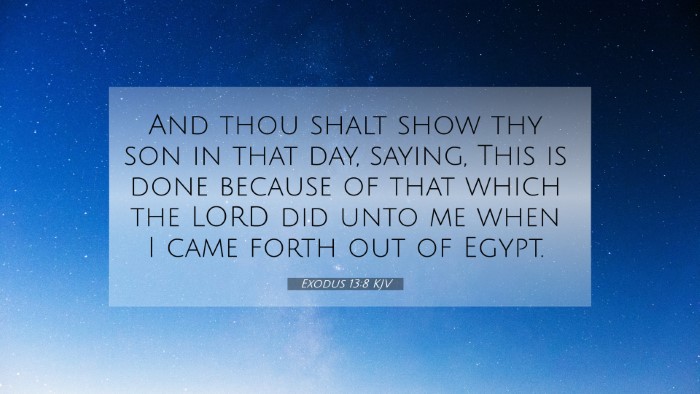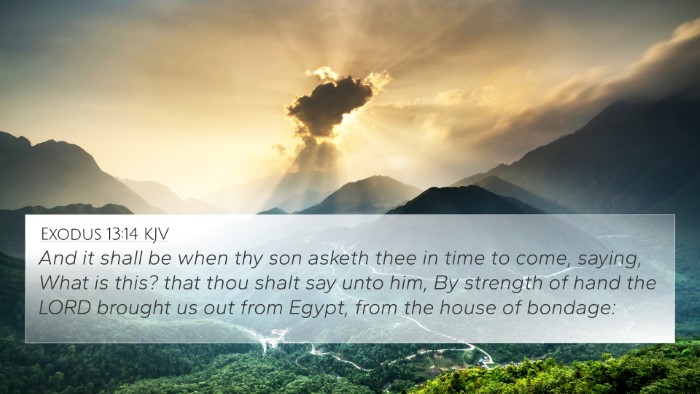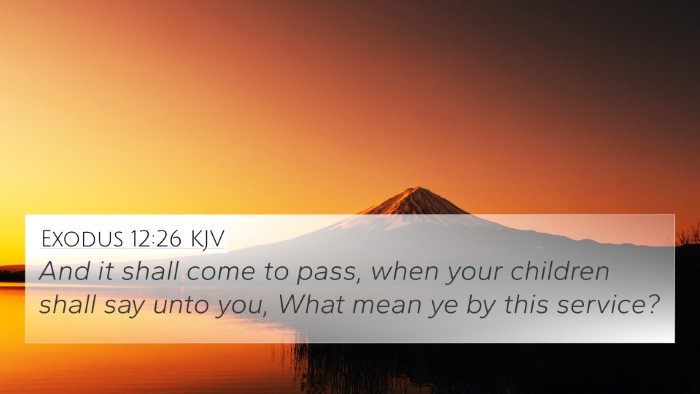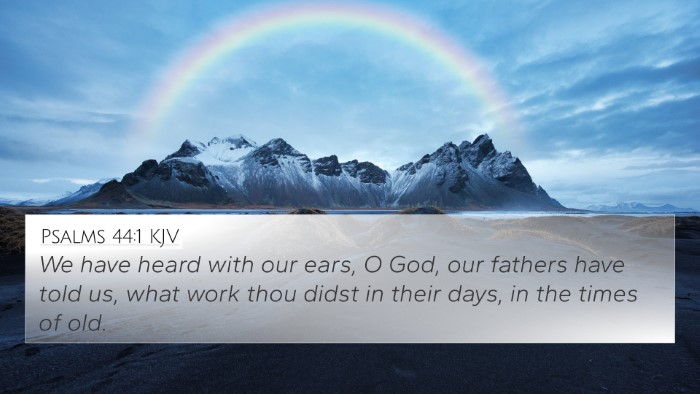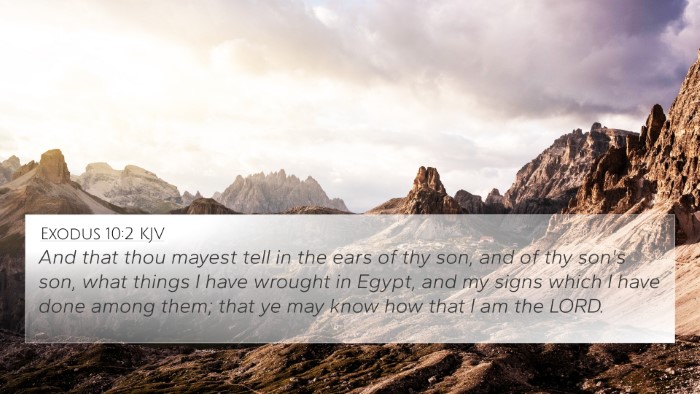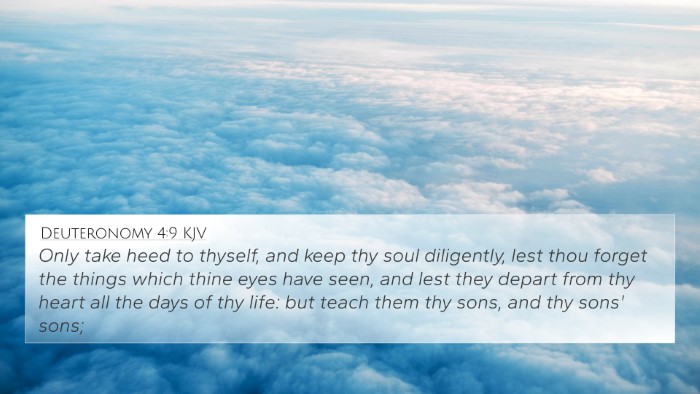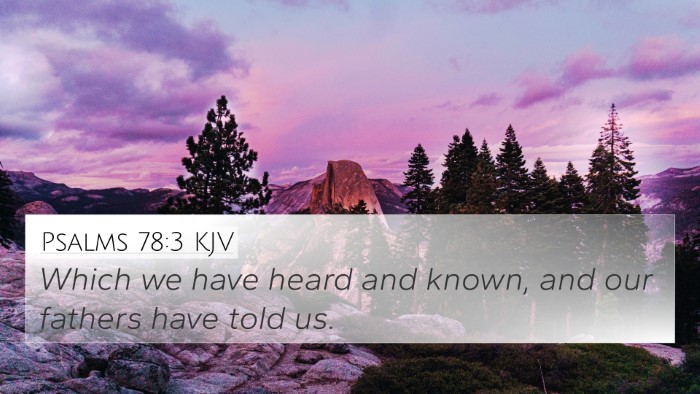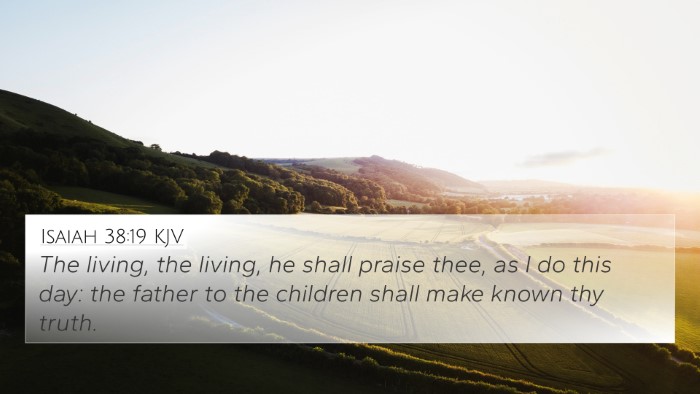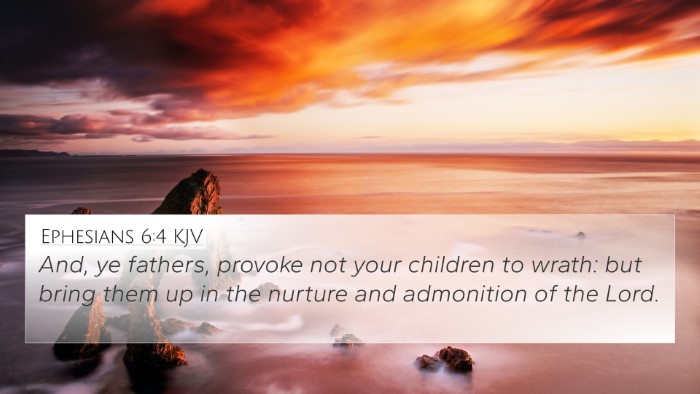Exodus 13:8 - Summary and Meaning
Exodus 13:8 states: "And you shall tell your son on that day, 'It is because of what the LORD did for me when I came out of Egypt.'" This verse captures a crucial moment in the Israelites' journey, emphasizing the importance of remembrance and the transmission of faith to future generations. Public domain commentaries provide insightful perspectives on the significance of this verse, highlighting various theological themes and practical applications.
Commentary Insights
According to Matthew Henry, this verse symbolizes the importance of teaching children about God’s deliverance. The phrase “you shall tell your son” reflects the responsibility of parents to pass down the narratives of God’s mighty works and faithfulness. This is not merely a recounting of historical events; it is a declaration of spiritual identity and heritage. Henry emphasizes that the act of remembrance serves to remind the next generation of God’s salvation and covenant with His people.
In Albert Barnes' view, this command to tell future generations highlights the necessity of oral tradition within the Hebrew culture. The act of remembrance is an integral part of worship and devotion—a way to instill faith and gratitude in the young. Furthermore, Barnes draws attention to the phrase “when I came out of Egypt,” linking it to broader themes of liberation and divine intervention, which echo throughout Scripture. He notes that this event embodies not just physical freedom but the spiritual freedom that comes from knowing God.
Adam Clarke expands on the idea of personal testimony inherent in this verse. He suggests that the declaration “because of what the LORD did for me” transforms a historical event into a personal experience. Clarke emphasizes that sharing personal experiences of God’s deliverance instills faith and creates a deeper connection to God. This personal aspect of the narrative encourages believers to reflect on their journeys and the specific ways God has acted in their lives.
Key Themes
- Remembrance: The act of remembering God’s deeds is essential in maintaining faith and identity.
- Generational Transmission: Parents are tasked with instilling faith and history in their children.
- Personal Testimony: Sharing personal experiences of God’s work strengthens community and faith.
- Divine Deliverance: The Exodus represents liberation, a theme prevalent throughout both the Old and New Testaments.
- Covenantal Relationship: Emphasizes God’s faithfulness in fulfilling His promises to His people.
Cross-References to Exodus 13:8
- Deuteronomy 6:7: "You shall teach them diligently to your children..." - Emphasizes teaching children about God’s commandments.
- Psalms 78:4: "We will not hide them from their children..." - The importance of sharing God’s works with the next generation.
- Joshua 4:6-7: "That this may be a sign among you..." - A reminder to future generations of God’s interventions.
- Exodus 12:14: "This day shall be a memorial to you..." - Reinforces the concept of remembrance of God’s actions.
- 1 Corinthians 11:24-25: "Do this in remembrance of me..." - The act of remembrance is vital in Christian practice.
- Luke 22:19: "And he took bread, gave thanks..." - Connecting the Last Supper to the idea of remembrance.
- Malachi 4:6: "And he will turn the hearts of the fathers to their children..." - The importance of familial faith transmission.
- Hebrews 11:22: "By faith Joseph, when he was dying..." - Joseph’s instructions to his descendants show the importance of heritage.
- 2 Timothy 1:5: "I am reminded of your sincere faith..." - The generational passing of faith from grandmother to mother to son.
- Acts 2:39: "For the promise is for you and your children..." - God's promises extend to future generations.
Thematic Connections in the Bible
The themes in Exodus 13:8 resonate throughout Scripture, linking various biblical texts with the idea of remembrance and heritage. Various tools for Bible cross-referencing can enhance understanding, allowing for deeper exploration of these connections. For instance, thematic Bible verse connections found in the narratives of Exodus can also be traced through the Gospels, where Jesus continually reminds His followers of the importance of remembering God’s promise and mission.
Comparative Bible Verse Analysis
When conducting a comparative study, one can see that similar exhortations to remember and pass on teachings exist in multiple contexts, illuminating the interconnectedness of scripture. It reveals how the Old Testament’s emphasis on memory and teaching was fulfilled in the New Testament through Christ's commands and the establishment of the Church, where remembrance takes on new dimensions through the practice of communion and sharing testimonies.
Conclusion
Exodus 13:8 encapsulates the essence of faith as a living legacy that must be nurtured and conveyed. It stands as a powerful reminder of the significance of personal and communal history in shaping our understanding of God and His acts of salvation. By utilizing Bible cross-reference guides and cross-referencing Bible texts, believers can greatly enhance their understanding of how these narratives weave together to form a rich tapestry of faith that spans generations. This verse not only encourages continual remembrance but also invites the faithful to engage in inter-Biblical dialogue, recognizing the ongoing narrative of God’s working among His people.
